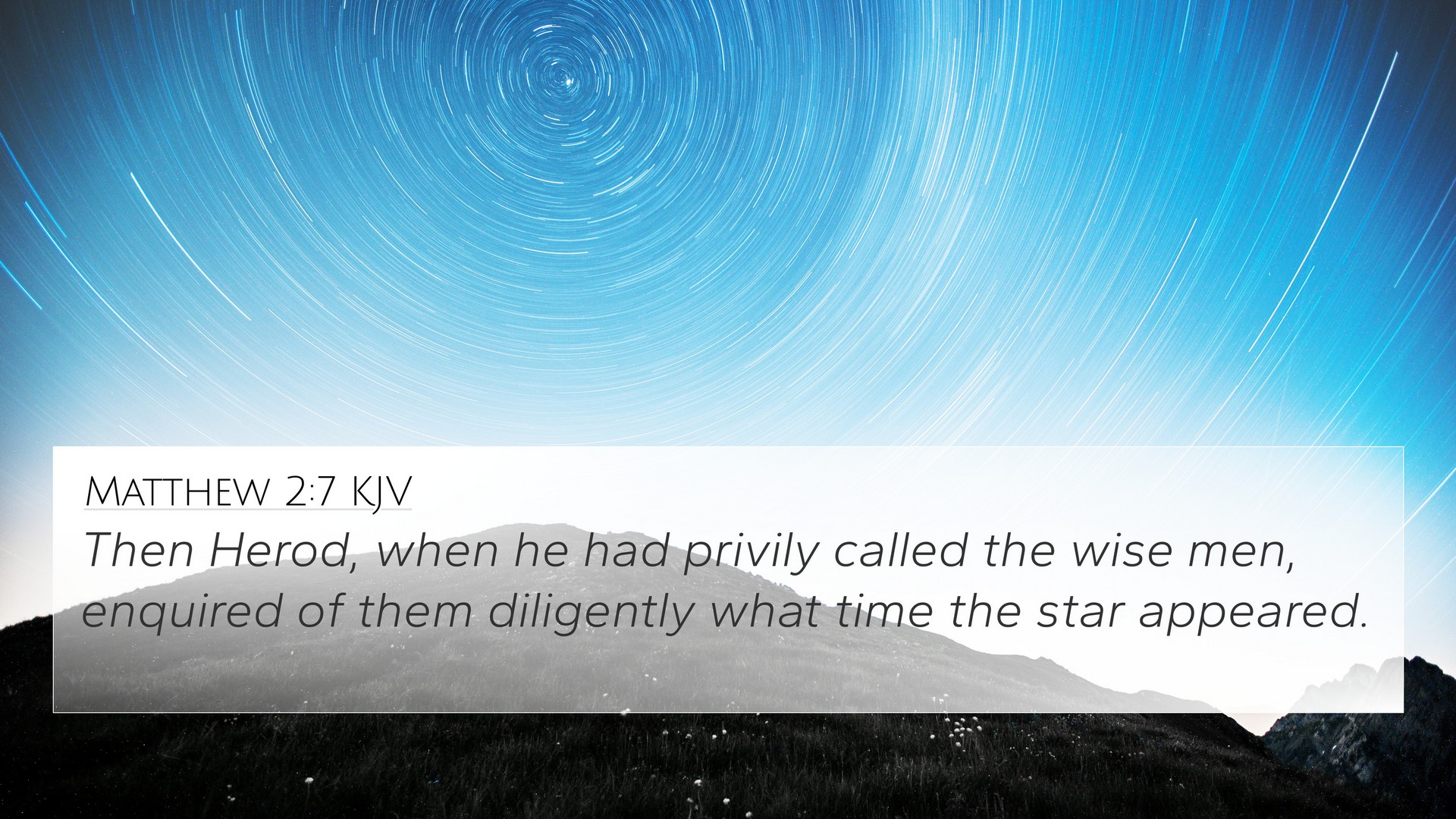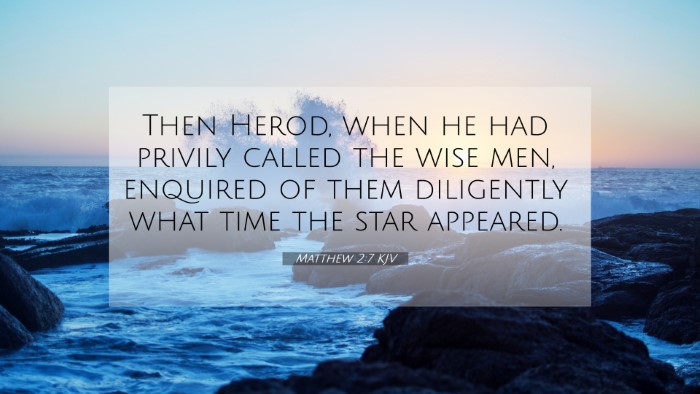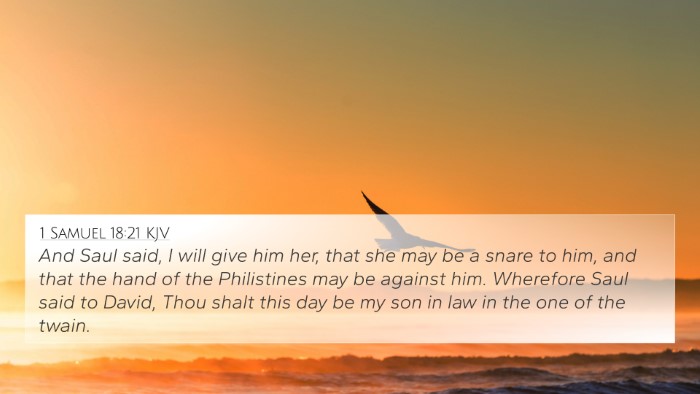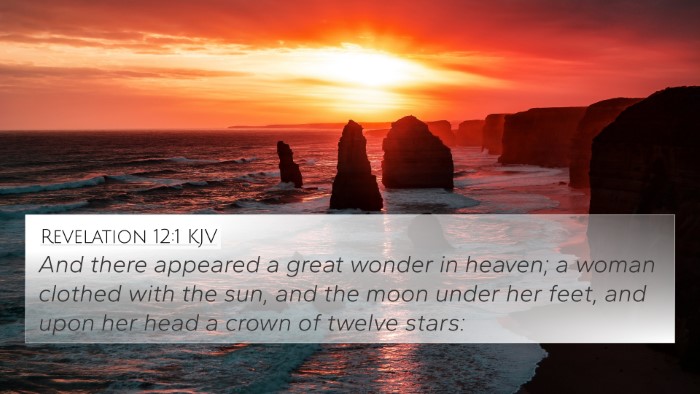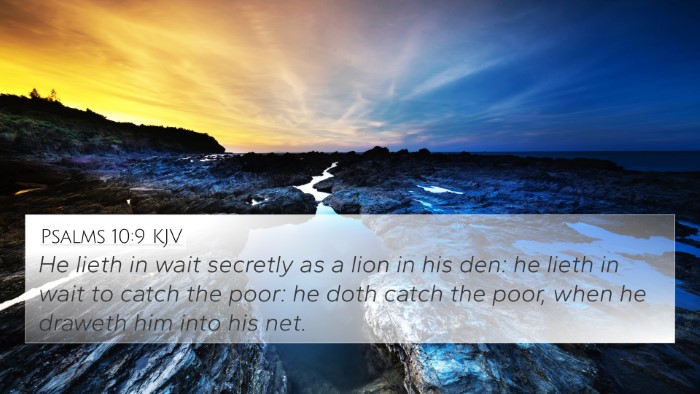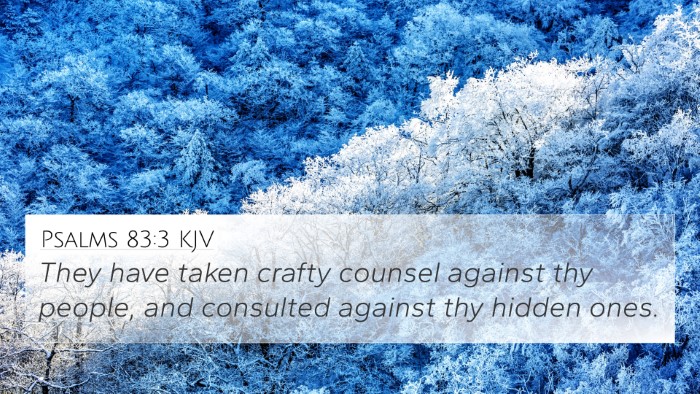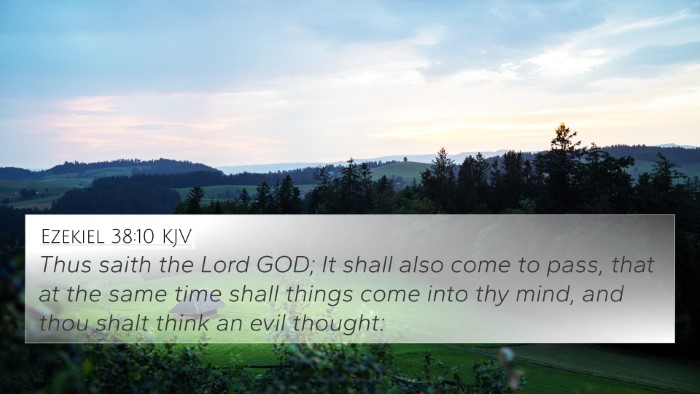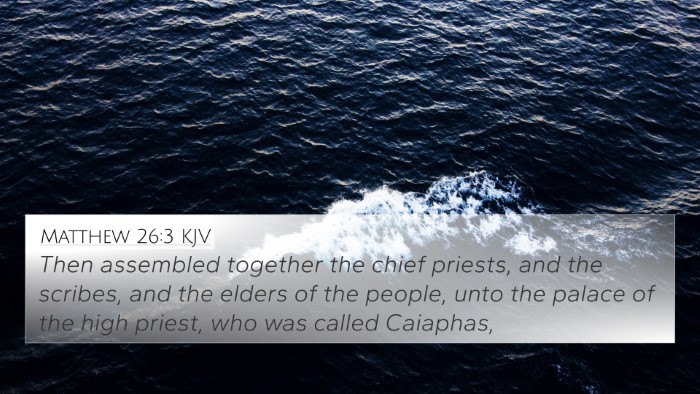Understanding Matthew 2:7
Bible Verse: "Then Herod, when he had privily called the wise men, inquired of them diligently what time the star appeared."
Summary and Insights
This verse captures a significant moment in the narrative of the birth of Jesus, highlighting King Herod's intrigue and malice. To better understand this verse, we can draw insights from established public domain commentaries by Matthew Henry, Albert Barnes, and Adam Clarke.
Historical Context
The setting of this verse occurs in Jerusalem after the birth of Jesus Christ. King Herod, known for his paranoia and cruelty, becomes uneasy at the news of a newborn "King of the Jews." This verse illustrates Herod's secretive approach to dealing with the potential threat posed by the wise men from the East.
Commentary Insights
- Matthew Henry: Henry emphasizes the cunning nature of Herod, who, instead of showing any desire for the welfare of the supposed King, seeks to manipulate the situation to his advantage. He notes the significance of the "star" as a divine sign indicating Jesus's arrival.
- Albert Barnes: Barnes elaborates on Herod's inquiry regarding the timing of the star's appearance, indicating the magi's role in the prophecy of Christ's coming. Barnes stresses the contrast between Herod's deceit and the genuine quest of the wise men.
- Adam Clarke: Clarke discusses the implications of this verse in relation to prophecy fulfillment. He posits that Herod's actions align with the scriptural prediction of an opposition figure to the Messiah, characterizing Herod's inquiry as both meticulous and malevolent.
Thematic Connections
The verse serves as a launching point for exploring several themes found throughout scripture:
- Deception and Manipulation: Herod's tactics echo the biblical theme of deceit, seen in figures like Jacob and Laban.
- Divine Guidance: The mention of the "star" connects to the idea of divine intervention, paralleling other scripture that speaks of guidance by God, such as in Numbers 24:17.
- Prophecy and Fulfillment: This reflects the broader biblical narrative of God fulfilling His promises throughout history, notably in Isaiah 60:3, which speaks of nations coming to the light.
Cross-References
Here are several bible cross-references that relate to Matthew 2:7, illustrating the interconnectedness of scripture:
- Micah 5:2: Predicts the birthplace of Christ, contrasting with Herod's fear and manipulation.
- Matthew 2:1-6: Provides context on the magi's arrival and Herod’s response.
- Revelation 12:4-6: Symbols related to Herod’s plot against the child echo back to his fear of losing power.
- Numbers 24:17: Another star prophecy, highlighting the messianic expectations surrounding the wise men's journey.
- Isaiah 60:3: Speaks of nations coming to the light, tying back to the magi's mission.
- Luke 2:8-20: Discusses the shepherds receiving the first news of Jesus, paralleling the wise men’s recognition.
- John 1:9: Describes Christ as the true light coming into the world, aligning with the significance of the star.
Conclusion
In exploring Matthew 2:7, one discovers the rich layers of biblical narrative, prophetic fulfillment, and the ethical dilemmas faced by its characters. The intertwining of Herod's deceit with the sincere quest of the wise men provides a profound commentary on human nature, power, and the divine plan. For those who seek a deeper understanding of the biblical text, examining cross-references allows for a comprehensive view of inter-Biblical dialogue and thematic connections. Engaging with these resources enhances scriptural study, providing valuable insights and promoting a richer appreciation of the Scripture's cohesive message.
